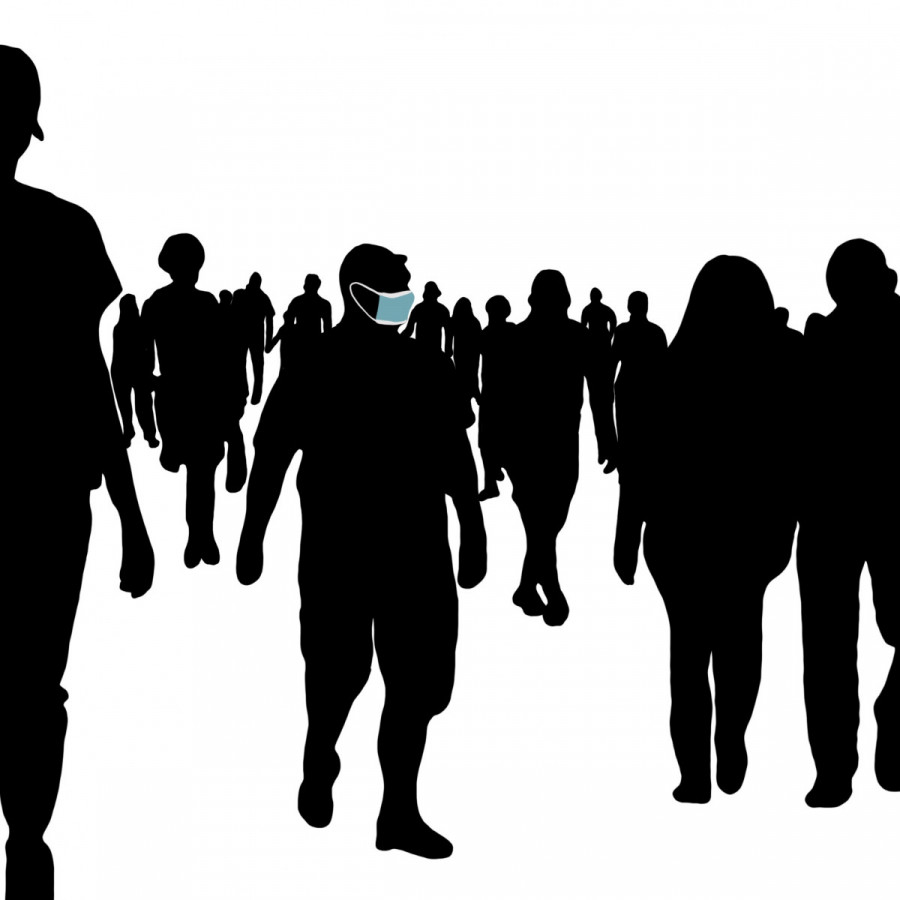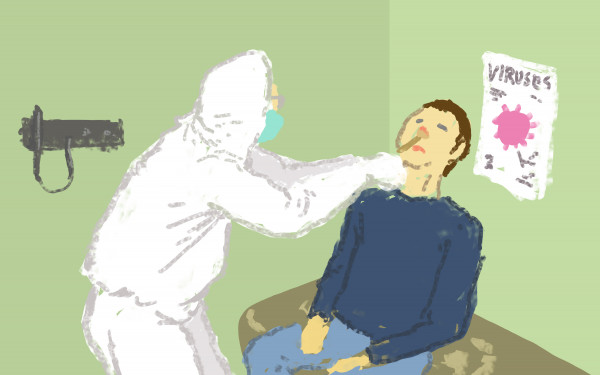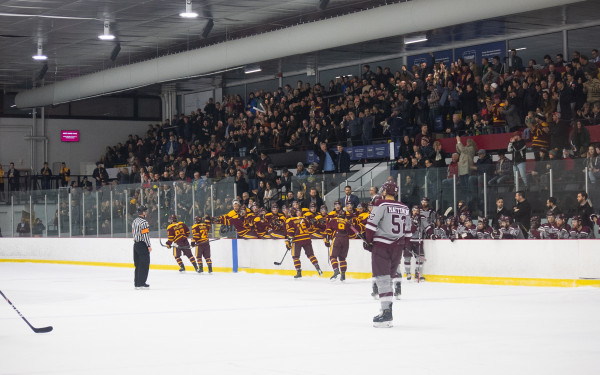Don’t @ Me: Academic Conferences Should Require and Provide Masks
Ableism Should no Longer Have a Place in Academia
A few weeks ago, I attended NASH85, a national conference for student journalists to network with each other and learn from established professionals.
I came back with knowledge, connections and COVID-19, as did most of the other Link representatives who attended.
Poorly ventilated conference rooms, an overpacked awards ceremony and long cafeteria lines were a few convenient breeding grounds for the Kraken, as some are now calling the most contagious coronavirus mutation to date. This is on top of the fact that no one was social distancing and very few were wearing masks.
Funny enough, many of the workshops I attended involved discussions surrounding accessibility. Student and career journalists alike used this buzzword to appear progressive, but plot twist: none of these soapbox preachers were masked up.
If accessibility were truly a priority to conference organizers, they would implement mask mandates, proper ventilation and other adequate health measures to ensure the safety of everyone in attendance.
This said, I admit I could be called hypocritical for being a member of the unmasked brigade.
My reasoning for skipping the mask that weekend was I didn’t believe it would make a difference—last time I caught COVID, I was wearing a mask in an otherwise unmasked crowd, much to my frustration. Not wanting to relive the bitterness of having done everything right to avoid infection only to still get sick, I decided I would accept partial responsibility for my unavoidable exposure.
Nonetheless, had I been wearing a mask at NASH, I would have at least been signalling to others that we should try to make conferences accessible.
For this reason, I regret not having worn a mask at the conference, especially since I wore one nearly everywhere I went during the past three years—including on the bus to and from NASH.
Journalists love to talk about accessibility and how their newspapers strive to be accessible. But accessibility becomes a buzzword when these same journalists refuse to make their spaces safe for populations vulnerable to COVID-19 and other airborne diseases. I mean, name one newsroom that requires the wearing of facial coverings. I wish the one I work in did.
Some may retort that wearing facial coverings is an individual responsibility and that mask mandates are a violation of personal freedoms. Those who claim this seem to be unaware that legally speaking, one’s freedom ends where the safety of others begins.
Everyone has the right to stay healthy and alive, so why are we still arguing about personal freedoms?
It’s true that we should all be responsible enough to wear a mask without being told to. Unfortunately, the lifting of mask mandates has showed us that most people will not take the initiative to wear one.
We are now three years into a pandemic that disproportionately affects specific demographics, including older adults and racialized minorities. Individuals with underlying medical conditions are also at risk of exhibiting severe symptoms, and anyone can develop and be disabled by long COVID.
Facial coverings should be mandatory in academic settings to ensure the safety and inclusion of those who are medically vulnerable. Masks should also be easily accessible and provided free of charge at all academic conferences.
It is beyond shameful that we are barring medically vulnerable individuals from academic opportunities because we simply cannot be bothered to create accessible spaces by wearing a piece of fabric over our nose.
Ableism and elitism have long plagued academic spheres; it is time we put an end to this latest example of social Darwinism. Bring the mask mandates back.





_600_375_90_s_c1.jpg)

